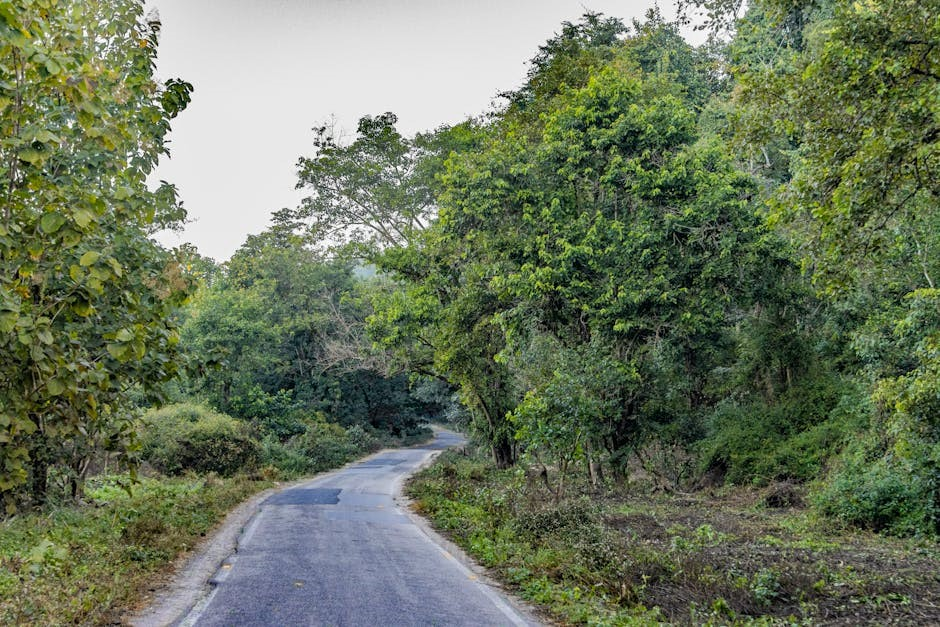Other Desert Cities is a compelling drama exploring family dynamics, political divisions, and the weight of secrets. Set in Palm Springs, the play delves into a family’s tense confrontation when a daughter reveals a memoir exposing a tragic event, testing loyalties and ideologies.
Overview of the Play
Other Desert Cities, written by Jon Robin Baitz, is a gripping drama that explores the complexities of family, politics, and secrets. The play centers on the Wyeth family, once prominent Reagan-era Republicans, as they confront a deepening divide. Brooke, the liberal daughter, returns home to announce her memoir, which threatens to expose a tragic family event. Set in Palm Springs, the story unfolds during a holiday gathering, where tensions escalate as the family grapples with loyalty, ideology, and the consequences of their past. With sharp dialogue and emotional depth, the play examines how silence and secrets can both unite and destroy, resonating powerfully in today’s politically charged world.
Background and Context
Other Desert Cities, written by Jon Robin Baitz, is a drama-comedy play that delves into the complexities of family relationships, political ideologies, and the weight of secrets. Set in Palm Springs, the play revolves around the affluent Wyeth family, whose members are deeply divided by their political beliefs. The story takes place during a holiday gathering, where the family’s past and present collide. Drawing inspiration from the Reagan era, the play explores themes of loyalty, legacy, and the cost of silence. Its title refers to a highway sign pointing to Indio, California, symbolizing the play’s exploration of identity and direction. First published in 2011, the play has been praised for its sharp wit and timely commentary on societal divisions.
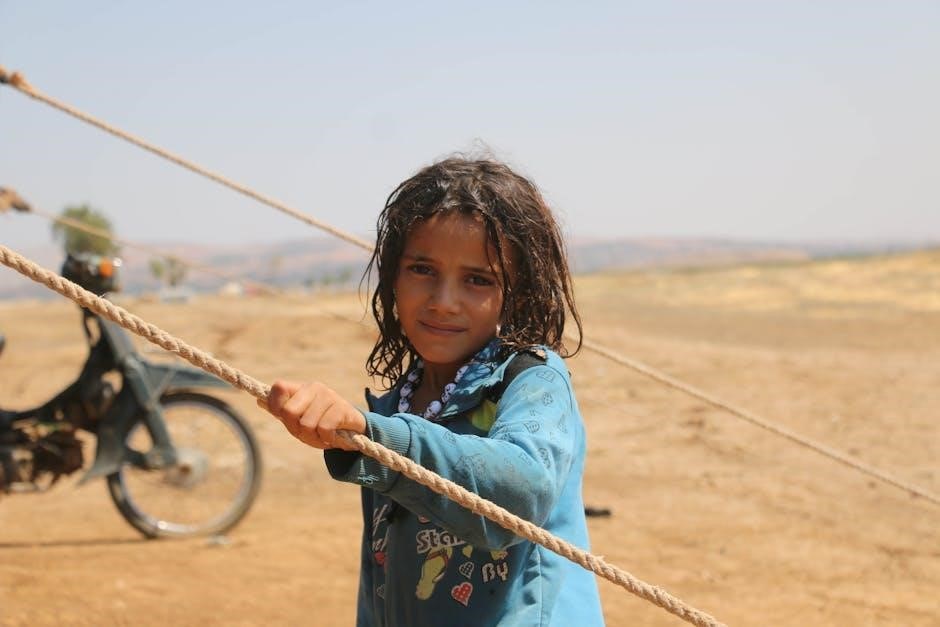
Plot Structure
The play unfolds during a tense holiday reunion where Brooke’s memoir revelation sparks familial conflict, exploring themes of loyalty, identity, and the consequences of truth, culminating in emotional resolution.
Setting in Palm Springs
The play is set in the luxurious home of Lyman and Polly Wyeth in Palm Springs, California, during a tense Christmas Eve gathering. The desert city serves as a symbolic backdrop, contrasting the family’s internal turmoil with the serene, sun-drenched landscape. The setting reflects the characters’ emotional states, with the desert’s isolation emphasizing their disconnection. Palm Springs, known for its wealth and retreat-like atmosphere, becomes a metaphor for the family’s attempts to escape their past and their differing values. The location plays a crucial role in shaping the dynamics and conflicts that unfold during the reunion.
The Wyeth Family Dynamics
The Wyeth family in Other Desert Cities is a complex, dysfunctional unit marked by tension and unresolved conflicts. The family gathers at their Palm Springs home, where the strained relationships between parents Lyman and Polly and their adult children, Brooke and Trip, come to the forefront. Brooke, a liberal writer, clashes with her conservative parents, while Trip struggles to mediate. The family’s dynamics are fraught with unspoken resentments, political divides, and long-held secrets. Their interactions reveal a deep-seated disconnect, with each member navigating their own sense of identity and loyalty amidst the turmoil.
The Memoir and Its Implications
Brooke Wyeth’s memoir serves as the catalyst for the play’s central conflict, revealing long-buried family secrets and reigniting old wounds. The memoir, which recounts the family’s troubled past, including the disappearance of Brooke’s brother, becomes a point of contention. Lyman and Polly are devastated by its potential publication, fearing public scandal and emotional repercussions. Brooke, however, sees it as a necessary truthsaying, despite the pain it may cause. The memoir symbolizes the clash between truth and family loyalty, forcing each character to confront their own role in the family’s fractured history. Its implications threaten to dismantle the fragile peace they’ve maintained.
Characters and Their Roles
The play revolves around the Wyeth family, including Brooke, a writer; Lyman, a retired actor; Polly, his wife; and Silda, Polly’s sister, each embodying distinct roles in the drama.
Brooke Wyeth: The Liberal Writer
Brooke Wyeth is the protagonist of the play, a liberal novelist who returns to her conservative family’s home in Palm Springs. Her visit coincides with Christmas 2004, and she brings a manuscript that reveals a long-hidden family secret. Brooke’s decision to publish her memoir sparks tension, as it critiques her family’s values and dredges up the tragic fate of her brother, Henry. Her character embodies the clash between personal truth and family loyalty, showcasing her idealism and inner conflict. Brooke’s journey highlights her struggle to reconcile her progressive beliefs with her upbringing, making her a dynamic and emotionally complex figure in the play.
Lyman and Polly Wyeth: The Conservative Parents
Lyman and Polly Wyeth are the patriarch and matriarch of the conservative Republican family at the center of the play. Both are staunchly Republican and embody traditional values, which clash with their daughter Brooke’s liberal ideals. Lyman, a former actor turned politician, and Polly, a sharp-tongued, protective mother, struggle to reconcile their pride in Brooke’s literary success with their disapproval of her memoir. Their unwavering commitment to family loyalty and secrecy creates tension, as they grapple with the revelation of long-buried truths. Their complex relationship with Brooke highlights the generational and ideological divides within the family.
Other Key Characters
Beyond the Wyeth family, Silda Grauman, Polly’s sister, plays a pivotal role with her sharp wit and comedic relief, while her drinking problem adds depth to her character. Trip Wyeth, Brooke’s brother, is the family’s neutral voice, often mediating conflicts. Silda’s presence challenges the family’s dynamics, offering a different perspective on their tensions. Trip’s role as a TV producer adds a modern contrast to the family’s traditional values. Both characters provide insight into the broader family dynamics and cultural divides, enriching the play’s exploration of identity and conflict.
Themes Explored in the Play
Family conflict, political divisions, and hidden secrets are central themes, exploring tensions between personal loyalty and ideological differences, set against a backdrop of unresolved past events.
Family Conflict and Loyalty
The play delves into the intricate dynamics of the Wyeth family, where personal loyalty clashes with ideological differences. Brooke’s decision to publish her memoir exposes long-held tensions, forcing each family member to confront their past and present loyalties. The conservative values of Lyman and Polly are pitted against Brooke’s liberal beliefs, creating a rift that threatens to unravel their relationships. Silda, the aunt, serves as a mediator, offering a nuanced perspective on loyalty and betrayal. The conflict highlights how loyalty can both unite and divide, leaving the family to grapple with the consequences of their choices and the weight of unresolved emotions.
Political Ideology and Division
The play examines the deep political divide within the Wyeth family, reflecting broader societal tensions. Brooke, a liberal writer, challenges her conservative parents, Lyman and Polly, whose Republican ties and values clash with her progressive views. The family’s ideological differences escalate during Brooke’s visit, as her memoir threatens to expose their past and political contradictions. Silda, the Democratic aunt, adds complexity to the debate, highlighting the personal and emotional toll of political discord. The play captures how ideology can fracture relationships and identity, ultimately questioning whether understanding is possible across such divides.
Secrets and Their Consequences
In Other Desert Cities, secrets are a catalyst for both conflict and revelation. Brooke’s memoir unveils a long-hidden family secret about her brother Henry’s tragic involvement in a radical group, which has haunted the Wyeths for years. The revelation forces the family to confront their shared guilt, suppressed emotions, and differing perspectives on truth and loyalty. Polly and Lyman’s attempts to control the narrative clash with Brooke’s desire for honesty, leading to a fractured family dynamic. The consequences of these secrets expose the fragility of relationships and the enduring weight of unresolved truths, shaping the play’s emotional core.
The Playwright: Jon Robin Baitz
Jon Robin Baitz is a renowned American playwright and screenwriter, born in 1961. He is best known for his work on the TV series ‘Brothers & Sisters’ and his acclaimed play ‘Other Desert Cities,’ which delves into themes of family conflict and political ideology.
Biography and Career Highlights
Jon Robin Baitz, born in 1961 in Los Angeles, is a celebrated American playwright and screenwriter. He gained early acclaim with his 1988 play The End of the Day. Baitz transitioned into television, serving as a writer and creator for the ABC series Brothers & Sisters, earning an Emmy nomination. His 2011 play Other Desert Cities became a critical hit, exploring family dynamics and political divides. The play garnered a Pulitzer Prize nomination, solidifying his reputation as a master of nuanced storytelling in both theater and television. His work often delves into complex relationships and societal issues, resonating deeply with audiences.
Other Notable Works
Jon Robin Baitz’s notable works include The End of the Day, a play exploring power dynamics in Hollywood, and Three Hotels, which examines moral dilemmas in corporate ethics. His television credits extend to Brothers & Sisters, where he served as creator and executive producer. Baitz also wrote for the film Kurt Cobain About a Son, showcasing his versatility across mediums. These works, like Other Desert Cities, delve into themes of family, identity, and societal conflict, further cementing his reputation as a nuanced and thought-provoking storyteller.

Production History
Other Desert Cities premiered Off-Broadway at the Lincoln Center Theater in 2011, directed by Joe Mantello. It later transferred to Broadway’s Booth Theatre in 2012, earning critical acclaim for its sharp dialogue and emotional depth. The production featured a stellar cast, including Stockard Channing, Stacy Keach, and Rachel Griffiths, and ran for 261 performances; Its success highlighted the play’s ability to resonate with audiences, solidifying its place in contemporary American theater.
Off-Broadway and Broadway Runs
Other Desert Cities opened Off-Broadway at Lincoln Center Theater in January 2011, directed by Joe Mantello. It later transferred to Broadway’s Booth Theatre, beginning previews in October 2012 and officially opening on November 1, 2012. The production starred Stockard Channing as Brooke Wyeth, Stacy Keach as Lyman Wyeth, and Rachel Griffiths as Polly Wyeth. The play ran for 261 performances on Broadway, closing on June 30, 2013. Its Broadway run garnered significant attention, including a Tony Award nomination for Best Play, further cementing its reputation as a compelling family drama.
Awards and Nominations
Other Desert Cities earned widespread critical acclaim and numerous accolades. It was a finalist for the 2012 Pulitzer Prize for Drama, recognizing its profound exploration of family and political dynamics. Stockard Channing received a Tony Award nomination for Best Actress in a Play for her portrayal of Brooke Wyeth. The play also garnered Drama Desk and Lucille Lortel nominations, highlighting its impact on the theater community. These recognitions underscored the play’s ability to resonate with audiences and critics alike, solidifying its place as a contemporary theatrical masterpiece with enduring relevance.
Regional Productions and Adaptations
Other Desert Cities has been widely produced in regional theaters across the U.S. and internationally. Theatres like Chicago’s Steppenwolf and Boston’s Huntington Theatre have staged acclaimed productions, showcasing the play’s universal appeal. Regional adaptations have allowed diverse interpretations, with local actors bringing unique perspectives to the Wyeth family. The play has also been performed in London’s West End and other global venues, demonstrating its cross-cultural resonance. These productions highlight the play’s adaptability and its ability to connect with audiences beyond Broadway, making it a staple in contemporary theater.
- Productions in over 20 U.S. cities.
- International adaptations in the U.K., Australia, and Canada.
- Regional theaters and community colleges frequently include it in their repertoires.
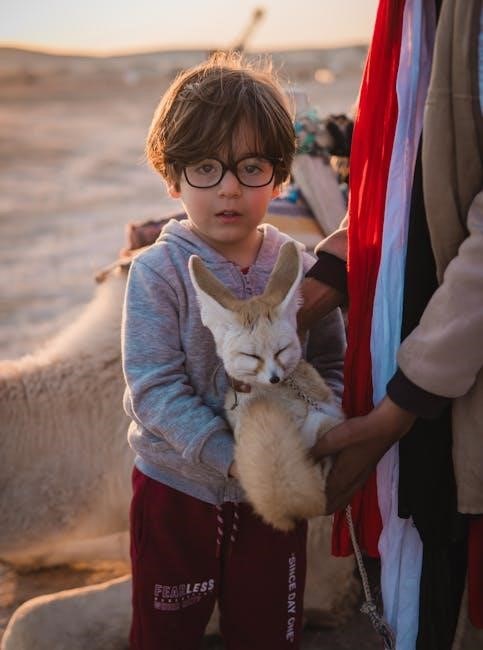
Critical Reception
The play received widespread critical acclaim for its sharp dialogue and timely themes. Critics praised its nuanced portrayal of family dynamics and political tensions. It earned multiple award nominations, including the Pulitzer Prize, and was celebrated for its emotional depth and intellectual stimulation. Audiences and scholars alike appreciated its balanced exploration of personal and political conflicts, solidifying its reputation as a modern classic in American theater.
Reviews and Ratings
Critics widely praised Other Desert Cities, with many highlighting its thought-provoking dialogue and complex characters. The play received high ratings for its emotional depth and relevance to contemporary political discourse. Reviewers noted its ability to balance humor with intense family drama, making it both entertaining and intellectually stimulating. Audiences also responded positively, appreciating its relatable themes of family conflict and ideological divide. The play’s nuanced exploration of human relationships earned it critical acclaim, solidifying its place as a standout work in modern American theater.
Comparisons to Other Works
Other Desert Cities draws comparisons to works like Arthur Miller’s Death of a Salesman in its exploration of family dynamics and societal expectations. Its politically charged dialogue mirrors plays like The Crucible, blending personal and ideological conflicts. However, its contemporary setting and sharp wit set it apart, aligning it with modern dramas such as August: Osage County. The play’s nuanced character development and layered storytelling also evoke similarities to film dramas focused on dysfunctional families. Its unique blend of humor and tension makes it a standout in both theater and literary circles.

Cultural Impact
Other Desert Cities reflects societal tensions, sparking conversations about family, politics, and identity. Its exploration of divisive themes resonates widely, making it a significant contemporary drama.
Relevance in Contemporary Society
The play’s exploration of family conflict, political ideology, and secrets resonates deeply in today’s polarized world. Its themes of division and loyalty mirror contemporary societal tensions, making it highly relevant. The struggle between progressive and conservative values, as well as the weight of unresolved pasts, reflects ongoing debates about identity and morality. Other Desert Cities challenges audiences to confront their own biases and consider the consequences of withholding truths. Its timeless issues ensure its continued resonance, encouraging reflection on personal and societal levels. This makes it a powerful tool for sparking conversations about modern life and relationships.
Influence on Political and Family Dramas
Other Desert Cities has significantly influenced contemporary political and family dramas, offering a nuanced portrayal of ideological clashes and personal secrets. Its exploration of family dynamics and political tensions has inspired playwrights to delve deeper into complex relationships and societal divisions. The play’s ability to blend personal and political narratives has set a benchmark for dramas addressing similar themes. Its impact is evident in works that explore family conflicts, political ideologies, and the weight of secrets. By mastering these elements, the play continues to inspire storytelling in both theater and screen productions, making it a pivotal work in the genre.

Key Scenes and Dialogue
- The announcement of Brooke’s memoir sparks tension, revealing deep family conflicts.
- The family confrontation exposes buried secrets and ideological divides.
- The resolution and aftermath highlight the emotional weight of their choices.
The Announcement of the Memoir
The announcement of Brooke’s memoir serves as the catalyst for the play’s central conflict. During a tense Christmas gathering, Brooke reveals her plan to publish a book about her brother’s suicide, a deeply painful and divisive topic for the Wyeth family. This moment exposing long-buried secrets and reignites old wounds. The announcement sparks immediate friction, particularly with her parents, Lyman and Polly, who fear the memoir will tarnish their family’s reputation and uncover truths they’ve worked to keep hidden; The scene masterfully captures the complexity of family dynamics and the power of storytelling to both heal and harm.
The Family Confrontation
The family confrontation in Other Desert Cities is a climactic scene where tensions boil over where Brooke’s memoir announcement. The Wyeth family’s simmering conflicts explode into a heated argument, with each member confronting their unresolved emotions and differing ideologies. Brooke’s decision to publish the memoir forces her parents, Lyman and Polly, to face their own guilt and regret. The confrontation reveals deep-seated resentments and exposes the fragile bonds within the family. This intense exchange is both emotionally charged and revealing, as each character’s true feelings and motivations come to light, further complicating their relationships and the play’s outcome.
The Resolution and Its Aftermath
The resolution of Other Desert Cities brings a fragile calm after the explosive confrontation. Brooke’s decision to publish her memoir remains unresolved, leaving the family in a state of emotional limbo. The aftermath underscores the irreversible damage caused by secrets and unspoken truths. Relationships are strained, yet there’s a glimmer of understanding among the Wyeths. The play ends with a sense of uneasy closure, highlighting the enduring impact of the family’s divisions. The ambiguity of the resolution leaves audiences reflecting on the consequences of choices and the resilience of familial bonds in the face of conflict and betrayal.
Symbolism and Metaphors
The desert setting symbolizes emotional aridity and hidden depths, while the title reflects duality, hinting at unseen truths beneath the surface of the Wyeth family’s polished facade.
The Desert as a Symbol
The desert in Other Desert Cities serves as a potent symbol, reflecting the emotional landscape of the Wyeth family. Its stark beauty and isolation mirror the characters’ internal struggles and disconnected relationships. The desert’s harsh environment symbolizes the family’s emotional aridity and the secrets buried beneath their polished exterior. It also represents a space of confrontation, where truths are uncovered and tensions rise. The desert’s duality—both breathtaking and unforgiving—echoes the play’s themes of family conflict and the clash of ideologies. Through this setting, the desert becomes a metaphor for the characters’ journeys toward revelation and reconciliation.
The Significance of the Title
The title Other Desert Cities carries deep symbolic weight, reflecting the duality of the play’s themes. It references a line from Joni Mitchell’s song “The Circle Game,” which mentions Palm Springs as one of the “other desert cities.” This title highlights the contrast between the luxurious, sun-kissed Palm Springs and the harsh, desolate desert that surrounds it. The phrase symbolizes the tension between the Wyeth family’s polished facade and the arid, unspoken truths that lie beneath. It also underscores the play’s exploration of identity, secrets, and the clash between appearances and reality, serving as a metaphor for the characters’ emotional journeys.
Comparisons to Other Works
Other Desert Cities shares thematic echoes with works like August: Osage County and The Price, exploring family dysfunction, secrets, and political tension through sharp, dialogue-driven storytelling.
Similar Themes in Literature
Other Desert Cities resonates with works like August: Osage County and The Price, where family dysfunction, secrets, and ideological clashes dominate. These stories explore how political and personal divides fracture relationships, mirroring the Wyeths’ struggles. The play’s focus on unresolved tensions and the weight of unspoken truths aligns with themes in Death of a Salesman and Long Day’s Journey into Night, where familial dynamics and societal expectations collide. Such narratives highlight the universal struggle to reconcile individual identity with collective responsibility, offering a profound commentary on human frailty and the enduring impact of past choices.
Comparisons to Film and Theater
Other Desert Cities draws parallels to films like August: Osage County and The Ice Storm, which explore dysfunctional families and political undercurrents. Theatrically, its tense dialogue and character-driven drama evoke works like Who’s Afraid of Virginia Woolf? and Death of a Salesman. The play’s use of a confined setting and explosive confrontations mirrors cinematic techniques in Chinatown, where secrets and betrayal unfold in a desert landscape. These comparisons highlight how Other Desert Cities blends the intimacy of theater with the narrative depth of film to create a gripping exploration of family and ideology.

Educational Significance
Other Desert Cities is valued in education for its exploration of complex family dynamics, political ideologies, and moral dilemmas, fostering critical thinking and empathy through relatable characters and conflicts.
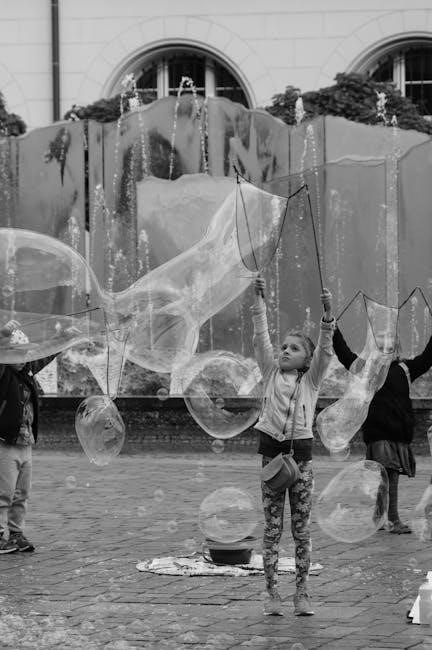
Why the Play is Taught in Schools
The play is taught in schools for its rich exploration of complex themes like family conflict, political ideology, and personal identity. Its contemporary setting and relatable characters make it accessible to students, encouraging critical thinking and empathy. The narrative’s focus on moral dilemmas and societal issues provides ample material for literary analysis and discussions on ethics. Educators value its ability to foster understanding of diverse perspectives and its relevance to modern societal challenges, making it a valuable educational resource for exploring drama and real-world applications.
Discussion Topics for Students
Students can explore themes like family loyalty vs. personal truth, analyzing Brooke’s decision to publish her memoir. Discussions on political divides within families and societal expectations vs. individual identity are also relevant. The role of secrets and their impact on relationships can spark debates. Additionally, the play’s setting in Palm Springs during a holiday highlights questions about tradition and escape. Students can also examine character development, particularly Brooke’s journey, and the moral dilemmas faced by each family member. These topics encourage critical thinking and empathy, fostering deeper understanding of the play’s complexities and universal themes.
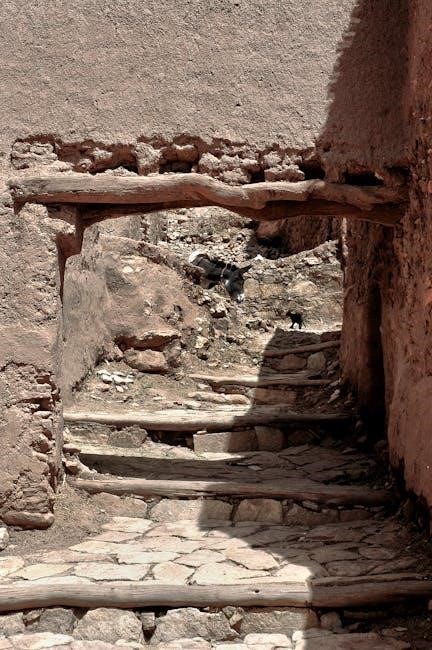
Final Thoughts
“Other Desert Cities” masterfully explores family, politics, and identity, offering a poignant reflection on loyalty and truth. Its emotional depth and sharp dialogue make it a compelling drama for audiences seeking thought-provoking theater.
“Other Desert Cities” is a powerful exploration of family dynamics, political divides, and personal identity. The play’s emotional depth and complex characters leave a lasting impression, inviting audiences to reflect on their own relationships and beliefs. Its ability to balance humor with tension underscores the universality of its themes. As a contemporary drama, it remains relevant, offering insights into the challenges of navigating differing ideologies within families. The play’s resonance lies in its honest portrayal of love, loyalty, and the enduring impact of secrets. It is a must-see for those who appreciate thought-provoking theater.
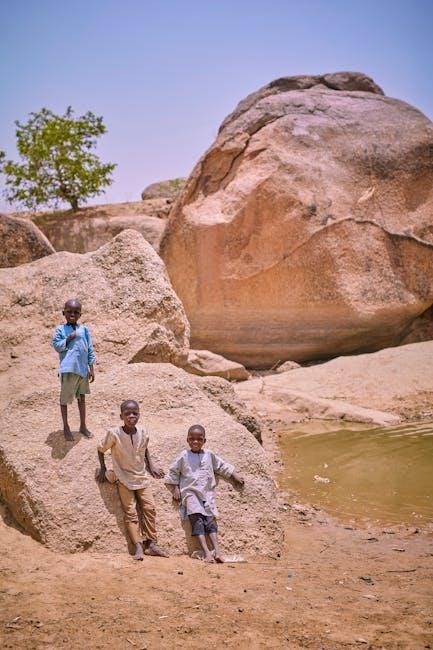
Recommendation for Audiences
“Other Desert Cities” is a gripping drama that appeals to audiences who enjoy complex characters, moral dilemmas, and politically charged narratives. The play’s nuanced exploration of family dynamics and ideological clashes makes it a compelling choice for both theater enthusiasts and those interested in contemporary social issues. Its balanced mix of humor and tension ensures an engaging experience. Viewers seeking thought-provoking storytelling with strong emotional resonance will find this play deeply rewarding. It is particularly recommended for those who appreciate character-driven dramas that challenge perspectives and spark meaningful conversations.
